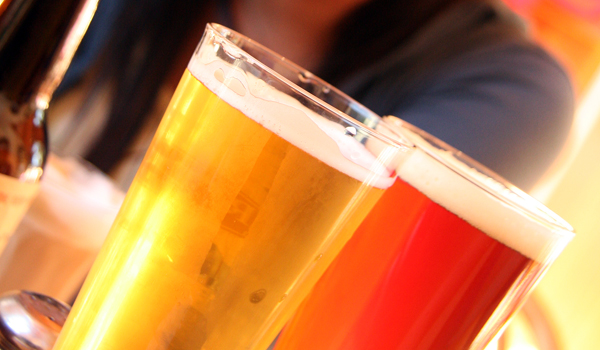Why We Get Dumb Drunk

A wild night of drinking can end in a blackout, a hangover or worse. So why do many people continue to pound back the booze?
It may be that we view the bad consequences of drinking as not all that bad, and not that likely to happen. Meanwhile, the more we experience the alluring effects ? such as becoming more outgoing ? the better they seem and the more likely we think they will occur. That is the finding of a new study at the University of Washington.
The finding "tells us that experiencing negative consequences from drinking is not really a deterrent from future drinking," said study researcher Kevin King, an assistant professor of psychology at the Seattle-based university.
"People think, 'It's not going to happen to me,' or 'I'll never drink that much again.' They do not seem to associate their own heavy drinking with negative consequences," King said.
Interventions aimed at reducing binge drinking may need to shift people's perceptions so they understand exactly how bad some of the consequences are, King told MyHealthNewsDaily.
How bad is bad?
King and his colleagues surveyed about 500 students at the University of Washington. The students answered how often, over the past year, they had experienced 35 different negative consequences of drinking, including blackouts, fights, hangovers, missed classes or work, and lost or stolen belongings. They also were asked how often they experienced 14 possibly positive consequences, such as improved conversational abilities and sexual encounters and more energy to stay up late.
Sign up for the Live Science daily newsletter now
Get the world’s most fascinating discoveries delivered straight to your inbox.
Participants rated how negative or positive they thought each consequence was, and whether they thought the consequence was likely to happen in the future.
In general, people who had experienced negative consequences rated them as less bad, and less likely to occur, than people who had not experienced negative consequences at all, King said. And those who experienced positive consequences rated them as better and more likely to happen than those who did not experience positive consequences.
In other words, in the view of drinkers, "the good gets better and happens more, while the bad does not get any worse or more frequent," the researchers wrote in the May 30 issue of the Psychology of Addictive Behaviors.
The exceptions were those who had undergone a very large number of negative experiences. They did see these experiences as more negative and more likely to happen again, the researchers said.
New interventions
The findings show that people don't necessarily sum up the good and the bad consequences of a situation and strive to avoid experiencing harm, said Christopher Kahler, chairman of the department of behavioral and social sciences at Brown University.
"People weigh those consequences in fairly complex ways," Kahler said. And people probably weigh the likelihood of those consequences based on their own experiences, he said.
Interventions to curb college drinking should perhaps not focus solely on the negative consequences of drinking, said study researcher Diane Logan, a University of Washington psychology graduate student.
Instead, programs might educate students to decrease their drinking so they still experience positive effects but avoid the negative ones, Logan said. And training exercises could teach students how to improve their social skills without the aid of alcohol, she said.
Pass it on: When we drink, we tend to think good things will happen more often and bad things won't.
This story was provided by MyHealthNewsDaily, sister site to LiveScience. Follow MyHealthNewsDaily staff writer Rachael Rettner on Twitter @RachaelRettner.

Rachael is a Live Science contributor, and was a former channel editor and senior writer for Live Science between 2010 and 2022. She has a master's degree in journalism from New York University's Science, Health and Environmental Reporting Program. She also holds a B.S. in molecular biology and an M.S. in biology from the University of California, San Diego. Her work has appeared in Scienceline, The Washington Post and Scientific American.









